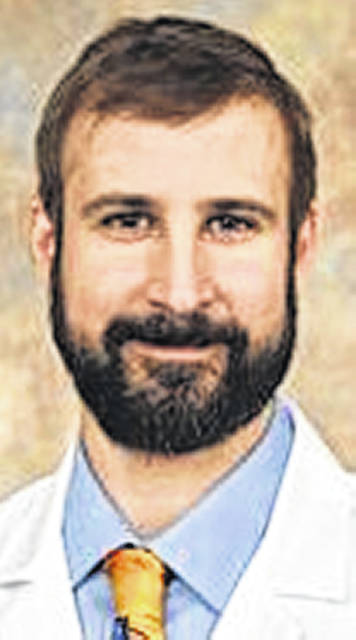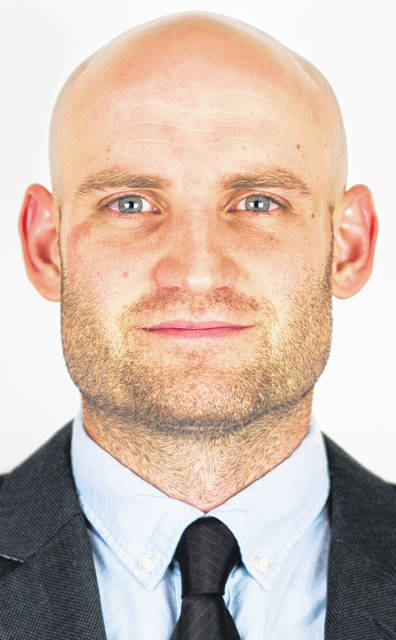

After a day on the wards treating COVID-19 patients, I came across an article in our hometown paper authored by Drs. Akers, Heaphy and Wehri titled “Good thing Trump brought HCQ to America’s attention.” I had recently been discussing the hysteria surrounding this drug with a friend and fellow physician from Greenfield, so you can imagine my surprise when I saw this editorial. I passed it on to him, and after reading it we both felt compelled to speak out for the frontline physicians and health care workers across this country.
Reproducibility is at the core of the lifesaving treatments we have to offer our patients. It is the ultimate gift of the scientific method. It is tried-and-true. It doesn’t root for or against your favorite team. It doesn’t vote red or blue. Its engine doesn’t stall in cold weather. Fervent support does not influence the outcome. Reproducing a result over and over is what provides indisputable evidence.
Yet not all evidence is created equal. Nor can you cherry-pick. You don’t get to select and promote conflicting evidence à la carte. A hierarchy of scientific studies exists to help test a theory or hypothesis, and at the pinnacle rests the double blinded randomized control trial. In layman’s terms, it means if you enroll as a participant in a study for a potential treatment, you’ll have no idea if you swallowed the sugar pill (placebo) or the drug, nor will the person who handed it to you, nor will the observer. At the start of the experiment the patients who received the drug are no sicker than the patients who received placebo. Thus eliminating substantial bias.
Much further down the spectrum, and by a great deal of distance, rests observational studies. Good science moves slower than we’d like. Unfortunately, a pandemic moves much faster. Retrospective observational studies are an attempt to examine the factors that lead to an event that has already taken place. They can be useful, but one must tread carefully. Confounders serve as high risks of bias. This is where correlation does not equal causation. For example, an extremely high percentage of lung cancer victims were breastfed as infants. Turns out, it was the cigarettes and not the breast milk that lead to the cancer. These flaws are nearly inescapable in retrospective observational studies, and nuance and skepticism is required in interpreting the results.
In the “Treatment with hydroxychloroquine (HCQ), azithromycin, and combination in patients hospitalized with COVID-19” study at Henry Ford Hospital there are confounders that cannot be ignored. This study suggested a survival benefit in patients receiving HCQ, but the devil is in the details. Patients who received HCQ, either with or without azithromycin, were over twice as likely to receive steroids. At this time, steroids happen to be the most effective treatment for COVID-19 with the best available evidence. So was the survival benefit because of the steroids or HCQ? Drs. Akers, Heaphy and Wehri allege that “Big Pharma” and the “federal government’s health care bureaucracy” are “not interested in inexpensive solutions to this crisis…” and yet our most effective and widely used treatment, dexamethasone (a steroid), is a drug that retails for less than the price of a Big Mac value meal.
Or was there an observed survival benefit because the patients who received HCQ were, on average, five years younger than patients who did not? Yet another major confounder. Once again, these are common observational study issues for which the authors of the study agreed: prospective (higher quality) studies are needed to draw a conclusion. Fortunately, they exist for those not wanting to cherry-pick. You’re entitled to your own opinions, but not your own facts. The Henry Ford trial was a single trial in a sea of other retrospective observational studies, which were overwhelmingly negative. More importantly, randomized controlled trials, both blinded and unblinded, have been uniform in demonstrating the ineffectiveness of HCQ. It also doesn’t matter whether it’s given early in the disease, to patients with a mild illness, or as a preventative therapy; the data simply does not suggest that it is effective.
Another erroneous insinuation from Drs. Akers, Heaphy and Wehri is that the Ohio Board of Pharmacy gave pharmacists the right to refuse dispensing HCQ because it was a dangerous drug. This is misleading. This order was passed on March 22 in order to prevent “panic prescribing” to asymptomatic or uninfected patients and to prevent rapid depletion from supply chains for a drug that has proven benefits for patients with malaria, rheumatoid arthritis or lupus. There were legitimate concerns that these patients would not be able to fill their prescriptions.
Our oath specifies several things, none of which are more recalled than: first, do no harm. If an intervention is given which has no proven benefit, or worse has proven ineffective, then even the most benign side effect profile is unacceptable. This is the risk-benefit ratio we balance on a daily basis in our profession.
Generally speaking, the providers taking care of dying patients with COVID-19 have moved on from HCQ like any other ineffective treatment. We work in two respective academic medical centers, but can say with confidence that HCQ is not used outside of the pretense of a clinical trial in any other center across the country. We faced a crisis in March from a novel disease for which we had little ability to test, much less treat. We threw hydroxychloroquine at it and it failed. We also threw lopinavir and ritonavir at it. No good. Similarly favipiravir and umifenovir. Unimpressive results. Objectively, there exists more negative trial data for HCQ than these other drugs combined. So, who pounds the table for these ineffective treatments?
We sympathize with patients, friends, or family who have difficulty interpreting the signal-to-noise ratio of potential treatments that are discussed on social media or in the local paper. We are disappointed by fellow physicians who don’t seem to have the ability to discern the evidence that they were trained to appraise and critique. Alternatively, and dishearteningly, they may have fallen prey to the very thing they condemn in their article: acting for political or economic purposes, not medical ones.
This humbling pandemic has reminded us we have to balance our ability to adapt while also safeguarding evidence-based medicine. “Fear it will work” is rhetorical drivel that has no place in the scientific community. If well-constructed, double-blinded, randomized control trials of several thousand patients provided legitimate evidence for the effectiveness of HCQ then we would prescribe it without hesitation.We would also not hesitate to discard any other drug in the same fashion if the data were to prove it to be as ineffectual as HCQ is for treating COVID-19.
New information is flowing in every day, and some new pieces of data may drastically change the way we manage these patients, helping to save lives or prevent debility. But it won’t come from a Facebook feed, an athlete, a celebrity, or the president. Our patients deserve better. We’ll stick with the scientific method.
Drs. Vincent Smith and Blake Matesic are from McClain High School graduates. Smith is a hospitalist in Chattanooga, Tenn. and an affiliated academic professor at UTHSC. Matesic is a hospitalist in Cincinnati and an Assistant Professor at the UC College of Medicine.



